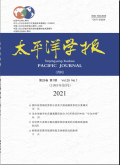太平洋学报2024,Vol.32Issue(1):86-101,16.DOI:10.14015/j.cnki.1004-8049.2024.01.007
共同但有区别责任原则在公海环境治理领域的适用问题
Issues on the Application of the Principle of Common But Differentiated Responsibilities in Environmental Governance on the High Seas
摘要
Abstract
While making difference in the field of environmental governance on high seas,the principle of common but differentiated responsibilities(CBDR)faces difficulties in its application from the perspective of theory and practice.In theory,there is a controversy in the legal nature of the CBDR.The elements of this principle remain unclear,and it is also uncertain whether there are exceptions to it.In practice,the CBDR applies to controls and management of ocean acidification,plastic pollution and persistent organic pollutants on the high seas,and the conservation and sustainable use of marine biological resources beyond national jurisdiction.However,the differentiated responsibilities seem to be ignored or weakened and it ap-pears to be difficult for the developing countries to take the common responsibilities.The causes of the above dilemmas are the outdated power-oriented approach to the high seas governance and the low standard for de-fining the differentiated responsibilities for high seas environmental governance.In practice,the reasons for the above-mentioned dilemmas are a lack of the international community to fully consider the differentiated responsibilities of developing countries,a difficulty in determining the historical responsibilities of each country and the weak willingness of the developed countries to assume differentiated responsibilities for technology transfer and financial support and tend to weaken differentiated responsibilities.At the theoretical level,it is important to clarify that the CBDR should be regarded as a legal principle in the envi-ronmental governance on the high seas.And it is very important to improve the classification of countries of differentiated responsibilities,improve the specific formation of differentiated responsibilities and insist on substantial equity.In practice,it is recommended to consider the demands of the developing countries in the field of maritime emission reduction and fully implement the CBDR in other controls and measures of the o-cean acidification.It is also important to emphasize and apply the CBDR within the negotiations of the Plas-tic Treaty,optimize financial support and technical assistance in the control of persistent organic pollutants and actively promote the capacity building and marine technology transfer mechanism of the Marine Biodi-versity of Areas Beyond National Jurisdiction(BBNJ)Agreement.关键词
共同但有区别责任/公海环境治理/全球治理/BBNJ协定/海洋环境保护Key words
common but differentiated responsibilities/high seas environmental governance/global govern-ance/BBNJ Agreement/marine environment protection分类
政治法律引用本文复制引用
王勇,潘鑫..共同但有区别责任原则在公海环境治理领域的适用问题[J].太平洋学报,2024,32(1):86-101,16.基金项目
本文系中国海洋发展基金会与中国海洋发展研究中心2023年度课题"BBNJ协定执行后对中国的影响及对策研究"(CODF-AOC202304)的阶段性成果、华东政法大学2023年度优秀博士学位论文培育项目"共同但有区别责任原则在公海环境治理中的适用研究"(2023-001)的阶段性成果. (CODF-AOC202304)

